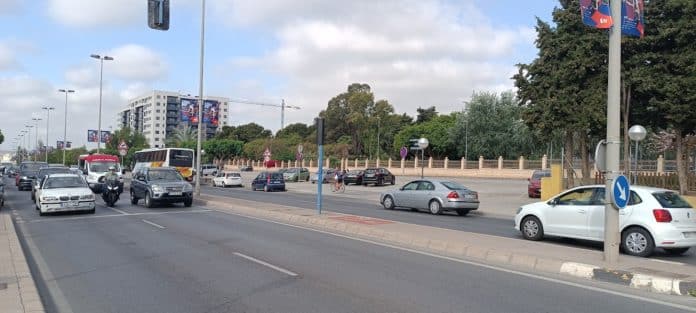After the European Parliament declared a climate and environmental emergency on 28 November 2019, and called on the member states to “urgently adopt” measures to combat climate change, article 14.3 of Law 7/2021 on Climate Change and Energy Transition was approved by the Spanish Government, where for cities with more than 50,000 inhabitants, a low emissions zone (ZBE) must be implemented before December 31, 2022.
Now, in March 2024, Alicante city council has announced that it is accelerating the plan for the implementation of the ZBE… After the summer.
The process of the Alicante Low Emissions Zone (ZBE) is entering its final phase with the expectation that it can be activated after the summer. The government team, from the PP “plans” to launch the public consultation that is mandatory to outline the drafting of its regulatory ordinance after Easter to collect contributions and suggestions that can be incorporated into its operating rules.
Municipal sources specified that this regulatory text in which the operation of the mobility control system will be delimited in the two rings in which the ZBE is configured is practically finalised, in coordination with the company awarded its development (Tecnologías Viales Aplicadas, TEVA), waiting for it to be complemented with technically viable improvement proposals that have not been considered until now.
Passing this consultative process will allow the proposed ordinance to be submitted for approval to the Government Board so that it can begin its political processing journey, with the presentation of amendments by the opposition groups (PSOE, Vox, Compromís and Esquerra Unida Podem), and can be raised for debate and approval in full.
With this calendar, everything seems to indicate that the ordinance could be initially approved between the months of June and July, which will open another additional period for the presentation of allegations before its final approval.
In this way, as long as the proposal succeeds with the necessary majority of votes, the new regulation could come into operation between the third and fourth quarter of the year. That is, before the deadline for its application expires, at the end of December of this year, based on the last extension granted for this by the Ministry for the Ecological Transition and the Demographic Challenge.
The ordinance must include the cases in which the activation of restrictions with their corresponding sanctioning regime will be contemplated at times in which pollution episodes greater than those permitted in the legislation on air quality, since there is a legal obligation to regulate them, although their effectiveness may be postponed to a specific time horizon, as has been announced in the case of the regulation approved in Elche, or it may be decided to expressly agree to a moratorium.
Aside from the legislative process, the control system is already operational in the testing phase, with cameras and measurement stations that make up its network already installed.
These cameras and sampling stations are located around the two rings already mentioned: an outer one, around the edge of Gran Vía, in which 51 entry and exit control points will be installed, with another 24 tracking and monitoring points, which will not only track traffic flows, but will also measure air quality.
According to municipal sources, these tests will soon be extended also to the smartphone application developed within the framework of the ‘Alicante Se Mueve Being Smart’ project that will allow users to know the state of traffic and its evolution in real time to choose the most favourable route in each case that allows you to avoid traffic jams or crowding points. The development of this APP would already be practically completed after having made compatible the data obtained by the nearly 300 cameras that make up the two projects: Alicante Se Mueve and the ZBE.
In the other large location to the south of Alicante, Torrevieja, a consultation was opened in October 2023, after they had previously published a similar proposal in 2021 with a one month consultation period, but silence has been the case since for both.





